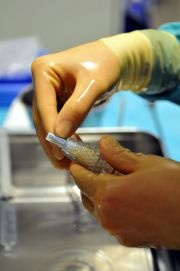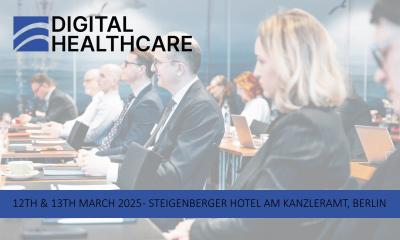Cutting costs with medical technology
Medical technology innovation, often viewed as a cost-driver can also be the key to cost-cutting in healthcare while at the same time improve the health outcome for patients. This was the core message of an experts' panel organised by the European Health Technology Institute for Socio-Economic Research (EHTI) at the European Health Forum Gastein.

With increasing life-expectancy and demands from patients and citizens showing no signs of abating, policy makers face difficult and often conflicting challenges. The recent economic downturn has simply increased pressures to come up with healthcare reforms that ensure continued effective and efficient provision of healthcare to all at an affordable cost. Zeger Vercouteren, Johnson & Johnson and member of EHTI’s Research Council referred to the work of Professor Christensen of Harvard University: “With the convergence of many scientific and technology breakthroughs, the pace of medical invention is accelerating, inspiring hope for better clinical outcomes with less invasive procedures and shorter recovery times, all in lower cost settings. These are powerful forces at work that are driving rapid fundamental change in healthcare. Unfortunately, barriers from lack of funding and reimbursement of the technology and the medical procedure are still standing in the way of full patient access, preventing this potential from being fully embraced.”
Telemonitoring: Remote device checks cut costs by more than half
One especially promising area in terms of cost reduction is the use of telemonitoring in healthcare. A striking example of how medical technology can contribute to improving the way healthcare is delivered are remote implantable device checks which can reduce physician time up to 70% and costs up to 60%. Studies into the potential of improved patient disease management have shown about 20% decrease in hospital admissions and in all cause mortality in heart failure patients, who have been followed more closely through telemonitoring.
Professor Michael F. Drummond of York University and member of EHTI’s Research Council discussed the fact that current methodologies used to assess the value of medical devices were designed with pharmaceuticals in mind and might not necessarily capture the full socio-economic contribution of innovations. He emphasized that, “medical technology can play a strategic role in fostering the change of health care delivery towards better health outcomes and financially sustainable systems”.
Rosanna Tarricone, Executive Director at the EHTI talks of the importance of the Institute: “Academic research can effectively help to close the research gap thus providing evidence to better inform policy decisions and helping industry better understands healthcare sector’s dynamics. EHTI was founded three years ago to be the first institute in Europe to engage in such innovative and timely research; new healthcare models cannot be interpreted through old paradigms”.
02.10.2009





